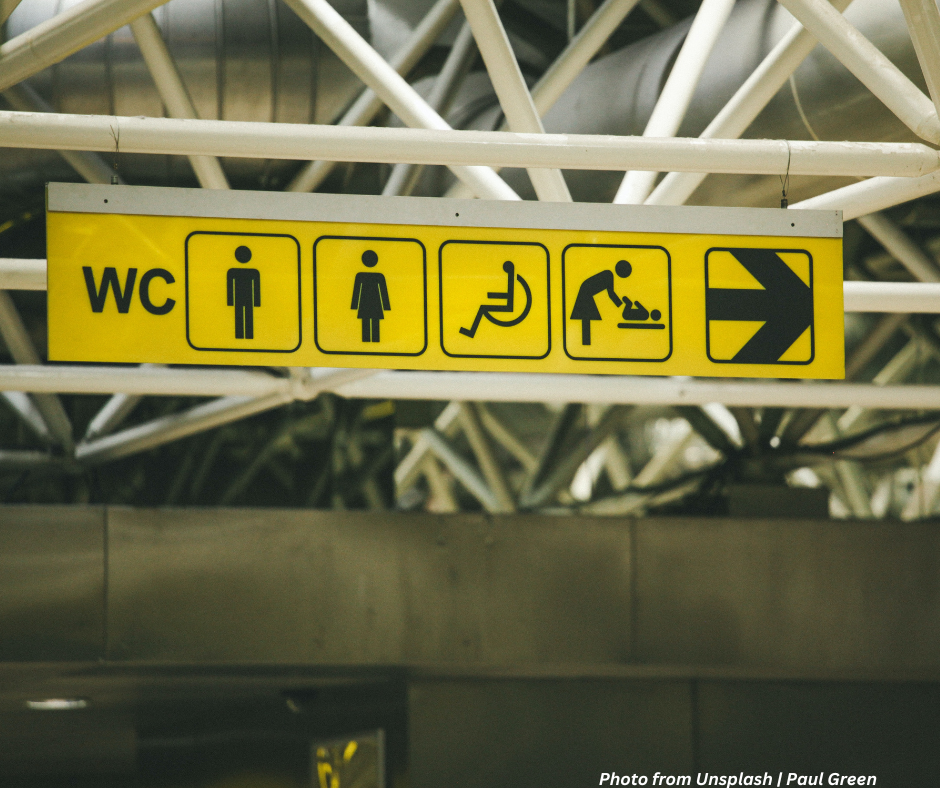
Photo from Unsplash | Paul Green
The following post does not create a lawyer-client relationship between Alburo Alburo and Associates Law Offices (or any of its lawyers) and the reader. It is still best for you to engage the services of a lawyer or you may directly contact and consult Alburo Alburo and Associates Law Offices to address your specific legal concerns, if there is any.
Also, the matters contained in the following were written in accordance with the law, rules, and jurisprudence prevailing at the time of writing and posting, and do not include any future developments on the subject matter under discussion.
AT A GLANCE:
The last Monday of March of every year is declared as “Women with Disabilities Day”, according to Proclamation No. 744, series of 2004.
The total development and empowerment of women is a state policy enshrined in the 1987 Constitution. The law says:
“The State recognizes the role of women in nation-building, and shall ensure the fundamental equality before the law of women and men.” (Section 14, Article II, 1987 Constitution)
The 1987 Constitution further provides that:
“The State shall protect working women by providing safe and healthful working conditions, taking into account their maternal functions, and such facilities and opportunities that will enhance their welfare and enable them to realize their full potential in the service of the nation” (Section 14, Article XIII, 1987 Constitution)
Equality in terms of capacity to act under the Women in Development and Nation-Building Act
Republic Act No. 7192 or the Women in Development and Nation-Building Act mandates the NEDA to ensure the active participation of women and women’s organizations in the development of programs and/or projects including their involvement in the planning, design, implementation, management, monitoring and evaluation thereof. (Section 4, par. 3, R.A. No. 7192)
As such, to encourage active participation of women, the law recognizes the need for equality in women in their capacity to act.
Section 5 of the law says:
“Women of legal age, regardless of civil status, shall have the capacity to act and enter into contracts which shall in every respect be equal to that of men under similar circumstances.
In all contractual situations where married men have the capacity to act, married women shall have equal rights.
To this end:
(1) Women shall have the capacity to borrow and obtain loans and execute security and credit arrangements under the same conditions as men;
(2) Women shall have equal access to all government and private sector programs granting agricultural credit, loans and nonmaterial resources and shall enjoy equal treatment in agrarian reform and land resettlement programs;
(3) Women shall have equal rights to act as incorporators and enter into insurance contracts; and
(4) Married women shall have the rights equal to those of married men in applying for passports, secure visas and other travel documents, without need to secure the consent of their spouses.
In all other similar contractual relations, women shall enjoy equal rights and shall have the capacity to act which shall in every respect be equal to those of men under similar circumstances.” (Emphasis supplied.)
Women with Disabilities
Women with disabilities are part of the society, and as such, deserve equal rights in the field of law and in all aspects of human endeavor.
The Magna Carta of Women (Republic Act No. 9710) provides that “the State shall support women with disabilities on a community-based social protection scheme.” (Section 27, par. e, R.A. No. 9710)
Section 2 of the law states that women’s rights shall be recognized, respected, protected, fulfilled and promoted without distinction or discrimination on account of disability, among others:
“The State affirms women’s rights as human rights and shall intensify its efforts to fulfill its duties under international and domestic law to recognize, respect, protect, fulfill, and promote all human rights and fundamental freedoms of women, especially marginalized women, in the economic, social, political, cultural, and other fields without distinction or discrimination on account of class, age, sex, gender, language, ethnicity, religion, ideology, disability, education, and status.
The State shall provide the necessary mechanisms to enforce women’s rights and adopt and undertake all legal measures necessary to foster and promote the equal opportunity for women to participate in and contribute to the development of the political, economic, social, and cultural realms. (Emphasis supplied.)
Proclamation No. 224, series of 2004
In dealing justly with the rights of women with disabilities and in order for the Philippine government to comply with the regional mandate prescribed under the Biwako Millennium Framework (BMF) for Action Towards an Inclusive Barrier-Free and Rights-Based Society for Persons with Disabilities in Asia and the Pacific adopted by the United Nations-Economic and Social Commission for the Asia and the Pacific (UN-ESCAP), Proclamation No. 224, series of 2004 was issued.
The law says:
“NOW, THEREFORE, I, GLORIA MACAPAGAL-ARROYO, President of the Republic of the Philippines, by virtue of the powers vested in me by law, do hereby declare the last Monday of March of every year as “WOMEN WITH DISABILITIES DAY”. (Proclamation No. 224, series of 2004)
Related article: Expanded benefits and privileges of persons with disability
Alburo Alburo and Associates Law Offices specializes in business law and labor law consulting. For inquiries regarding taxation and taxpayer’s remedies, you may reach us at info@alburolaw.com, or dial us at (02)7745-4391/0917-5772207.
All rights reserved.


